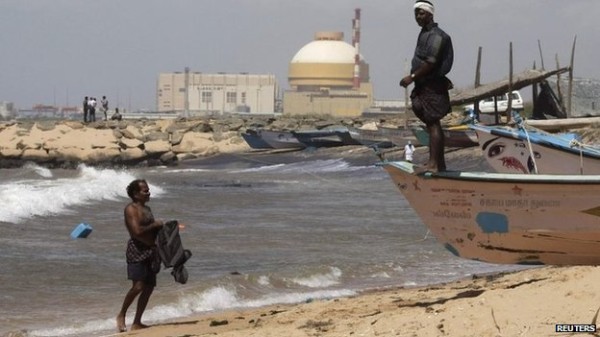
Locals say the plant is located in an area which was badly affected by the 2004 Asian tsunami
The controversial Kudankulam nuclear plant in India’s Tamil Nadu state has begun producing electricity after years of delays and protests, officials say.
The plant was connected to the grid on Tuesday, Press Trust of India reported.
In May, India’s Supreme Court ruled that the power station could start operations as it was “safe and secure”.
Opponents of the plant, which is on the coastline hit by the 2004 Asian tsunami, fear a disaster similar to the one at Fukushima in Japan in 2011.
Last year, Kudankalum was the scene of mass protests over safety concerns.
But the government says the joint Indo-Russian project, which is seen as critical to India’s energy needs, is “necessary for the welfare and economic growth of India” and is “completely safe”.
The plant is one of many that India hopes to build as part of its aim of generating 63,000 MW of nuclear power by 2032 – an almost 14-fold increase on current levels.
The plant became operational during Prime Minister Manmohan Singh’s two-day visit to Moscow.
Mr Singh was expected to finalise a deal with Russia for more reactors for the plant, but it fell through as Russia has refused to sign India’s nuclear liability law.
The law stipulates that nuclear firms aiming to set up plants in India will have to pay huge sums of money in case of an accident and Delhi and Moscow have not been able to agree on this clause.



Leave a reply